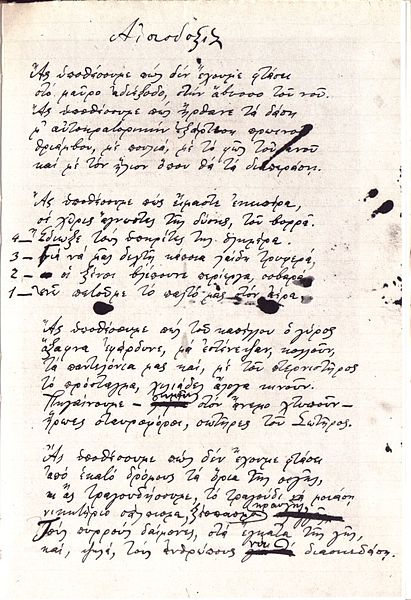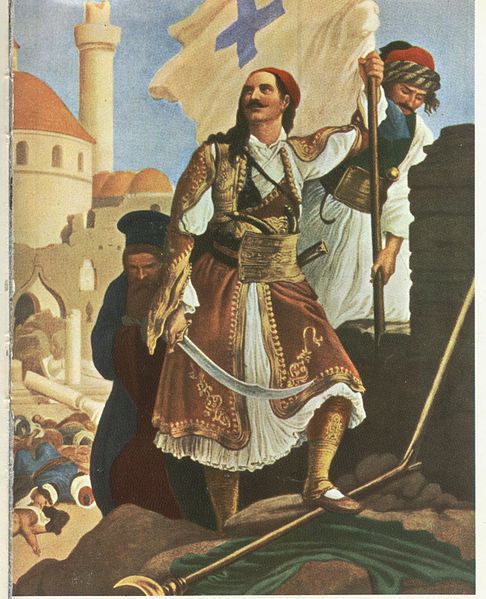Kostas Karyotakis is considered one of the most representative Greek poets of the 1920s and one of the first poets to use iconoclastic themes in Greece. His poetry conveys a great deal of nature, imagery and traces of expressionism and surrealism. He also belongs to the Greek Lost Generation movement. The majority of Karyotakis' contemporaries viewed him in a dim light throughout his lifetime without a pragmatic accountability for their contemptuous views; for after his suicide, the majority began to revert to the view that he was indeed a great poet. He had a significant, almost disproportionately progressive influence on later Greek poets.
Kostas Karyotakis, self-portrait
The poet's birthplace in Tripoli
Kostas Karyotakis in Sykia village of Corinth, with his sister, nephew, and his brother's sister-in-law, year 1927
Optimism, hand written manuscript by Kostas Karyotakis
Tripoli is a city in the central part of the Peloponnese, in Greece. It is the capital of the Peloponnese region as well as of the regional unit of Arcadia. The homonymous municipality had 44,165 inhabitants in 2021.
"Commander Panagiotis Kefalas plants the flag of Liberty upon the walls of Tripolizza, after the Siege of Tripolitsa" by Peter von Hess
Another basin in Tripolis municipal unit Levidi (basin of the communities “Vlacherna/Hotoussa/Kandila”), ca. 25 km north of Tripoli
Pond Taka, floods around and ponors of former temporary Lake Taka. Tripoli in the far back
Areos Square with the Court House, designed by Ernst Ziller








